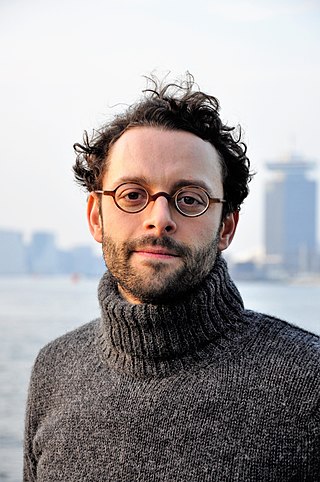Related Research Articles

Johann Nikolaus Harnoncourt was an Austrian conductor, known for his historically informed performances. He specialized in music of the Baroque period, but later extended his repertoire to include Classical and early Romantic works. Among his best known recordings are those of Bach, whose 193 cantatas he recorded with Gustav Leonhardt.

Peter Schreier was a German tenor in opera, concert and lied, and a conductor. He was regarded as one of the leading lyric tenors of the 20th century.

Jill Crossland is an English pianist, born in Yorkshire. She studied with Ryszard Bakst at Chetham's School of Music and the Royal Northern College of Music in Manchester, and with Paul Badura-Skoda in Vienna. She has a preference for Baroque and Classical periods of the repertoire, with a focus on the music by Johann Sebastian Bach, playing it on the piano. She has performed his Well-Tempered Clavier from memory since her student years.

Ich will den Kreuzstab gerne tragen, BWV 56, is a church cantata composed by Johann Sebastian Bach for the 19th Sunday after Trinity. It was first performed in Leipzig on 27 October 1726. The composition is a solo cantata because, apart from the closing chorale, it requires only a single vocal soloist. The autograph score is one of a few cases where Bach referred to one of his compositions as a cantata. In English, the work is commonly referred to as the Kreuzstab cantata. Bach composed the cantata in his fourth year as Thomaskantor; it is regarded as part of his third cantata cycle.

Johann Sebastian Bach was a German composer and musician of the late Baroque period. He is known for his orchestral music such as the Brandenburg Concertos; solo instrumental works such as the cello suites and sonatas and partitas for solo violin; keyboard works such as the Goldberg Variations and The Well-Tempered Clavier; organ works such as the Schubler Chorales and the Toccata and Fugue in D minor; and choral works such as the St Matthew Passion and the Mass in B minor. Since the 19th-century Bach Revival, he has been generally regarded as one of the greatest composers in the history of Western music.
John Butt is an English orchestral and choral conductor, organist, harpsichordist and scholar. He holds the Gardiner Chair of Music at the University of Glasgow and is music director of the Dunedin Consort with whom he has made award-winning recordings in historically informed performance. He is a prolific scholar, conductor and performer of works by Johann Sebastian Bach.

Jan Kobow is a German classical tenor in concert, Lied, and Baroque opera.
Alexander Ferdinand Grychtolik is a German harpsichordist, improviser, musicologist and academic.
Konrad Jarnot is an English baritone who works in opera and oratorio and is a notable performer of Lieder. He is a professor at the Robert Schumann Hochschule.

Gotthold Schwarz is a German Bass-baritone and conductor. Based in Leipzig, he started as a member of the Thomanerchor and has conducted the Gewandhausorchester. Between 2016 and 2021, he was the 17th Thomaskantor after Johann Sebastian Bach.

Schlage doch, gewünschte Stunde, BWV 53, is an aria for alto, bells, strings and continuo. It was likely composed in the early 18th century, although its date of first performance is unknown. From the second half of the 18th century until the early 1950s the aria was attributed to Johann Sebastian Bach. In 1955, it was suggested by the Bach scholar Karl Anton that the aria's composer was more likely to be a member of Melchior Hoffmann's circle.
Vereinigte Zwietracht der wechselnden Saiten, BWV 207.1, is a secular cantata composed by Johann Sebastian Bach and first performed on 11 December 1726 in Leipzig.
Siegfried Lorenz is a German baritone who performs opera, oratorio and Lied. A member of the Komische Oper Berlin and later the Staatsoper Unter den Linden, he made award-winning recordings and appeared as a guest internationally. He has been an academic voice teacher in Berlin and Hamburg.

BWV Anh., abbreviation of Bach-Werke-Verzeichnis Anhang, is a list of lost, doubtful, and spurious compositions by, or once attributed to, Johann Sebastian Bach.
Katharine Fuge is an English soprano in concert and recital who is known for her work with John Eliot Gardiner's Bach Cantata Pilgrimage of 2000.
Chiyuki Urano is a Japanese classical baritone and bass who has appeared in concert and recital.

Benjamin Alard is a French classical organist, harpsichordist and clavichordist.
Bach composed Wie schön leuchtet der Morgenstern, BWV 1, as chorale cantata for the Marian feast of the Annunciation, for a first performance in a church service in Leipzig on 25 March 1725. The cantata, for soprano, tenor and bass soloists, four-part choir and Baroque orchestra, takes around 25 minutes to perform.
This is a list of recordings of Bach's cantata Ich will den Kreuzstab gerne tragen, BWV 56, a solo cantata for bass or bass-baritone composed for the 19th Sunday after Trinity, first performed on 29 October 1726. In English, it is commonly referred to as the Kreuzstab cantata.
References
- ↑ "Sebastian Noack (Baritone)". Bach Cantatas. Retrieved 28 July 2015.
- ↑ The Gramophone. C. Mackenzie. 2004. p. 84.